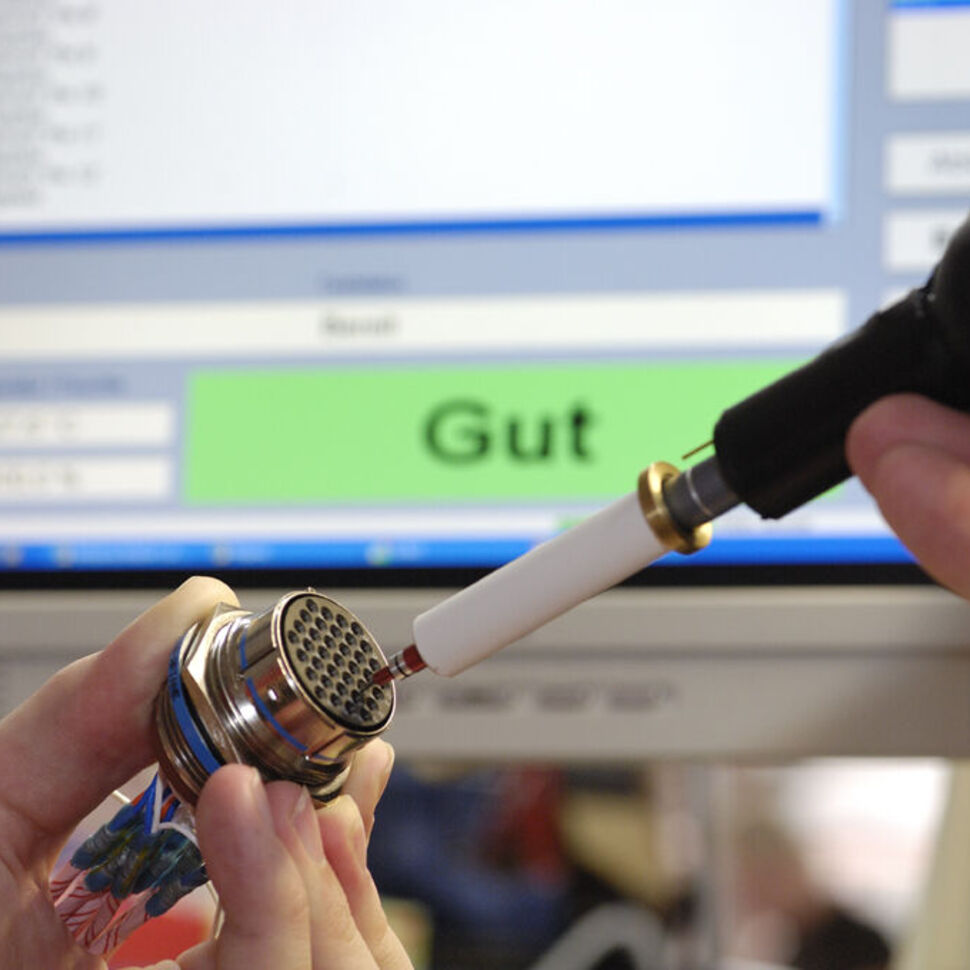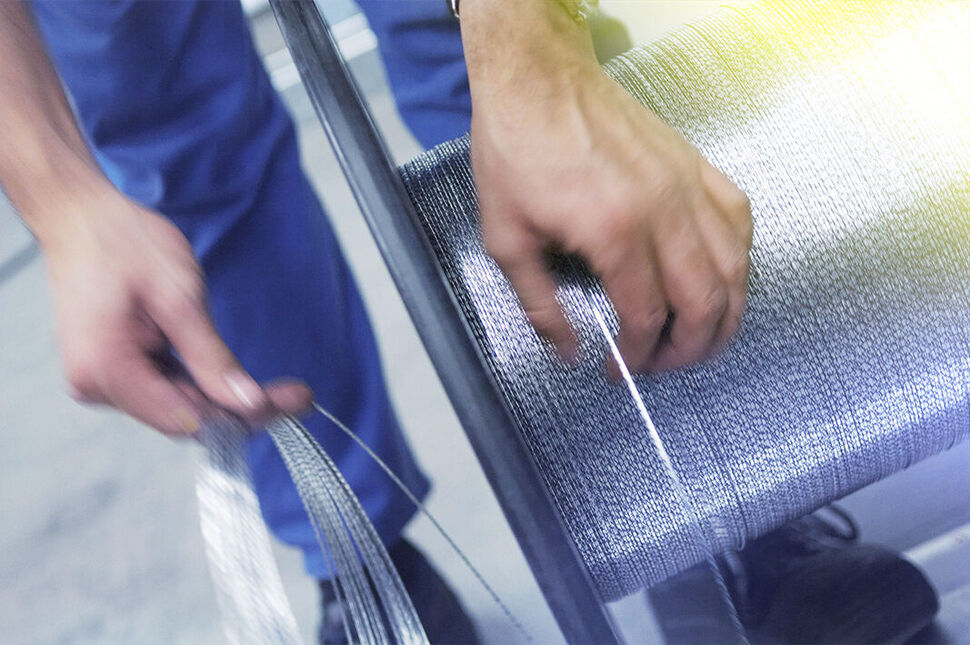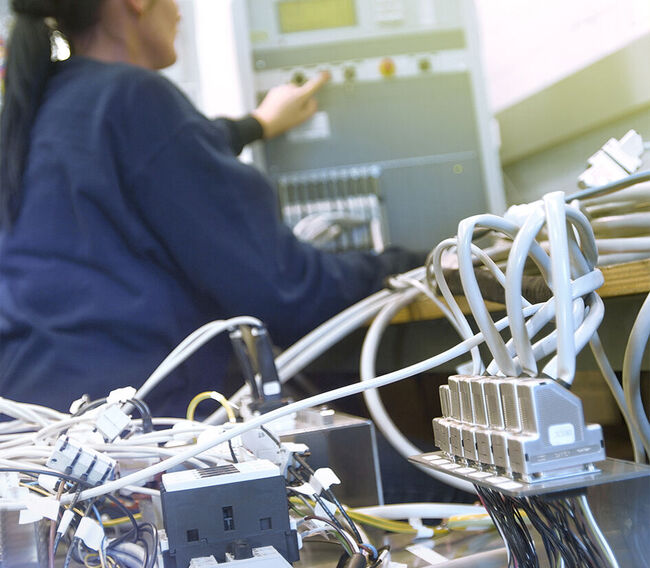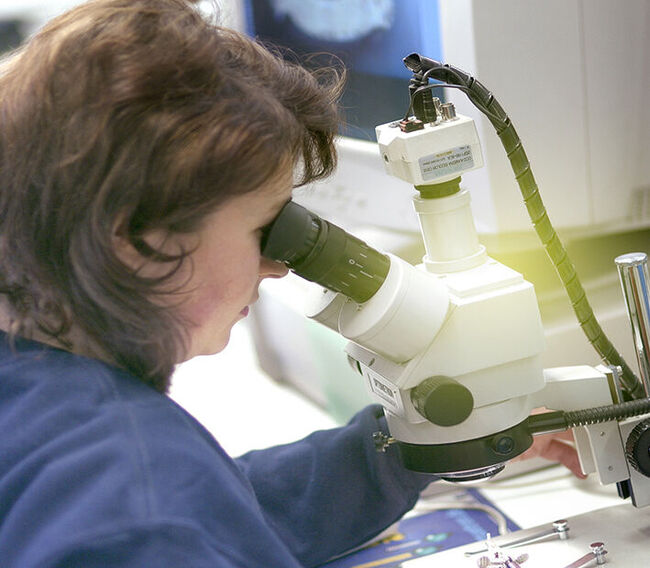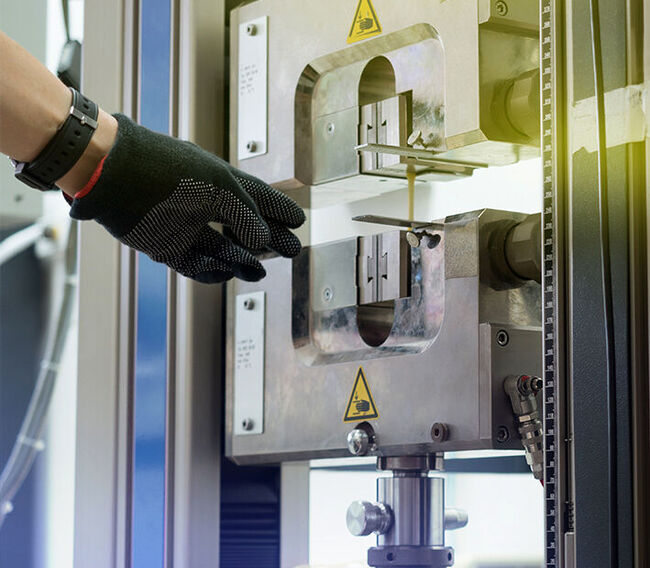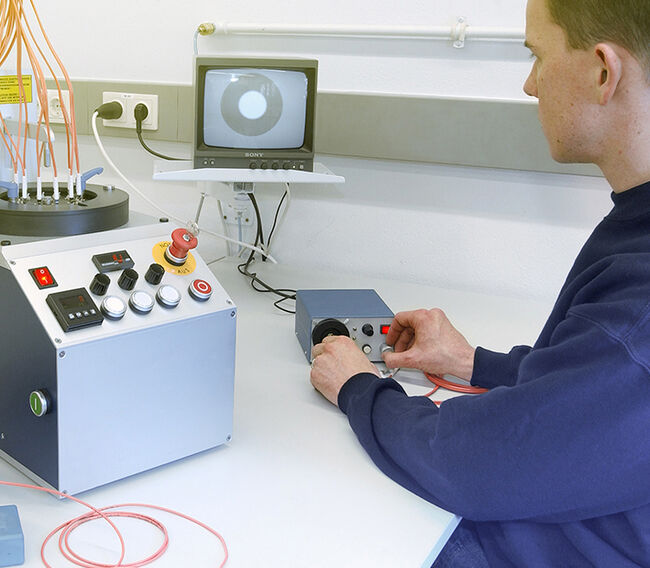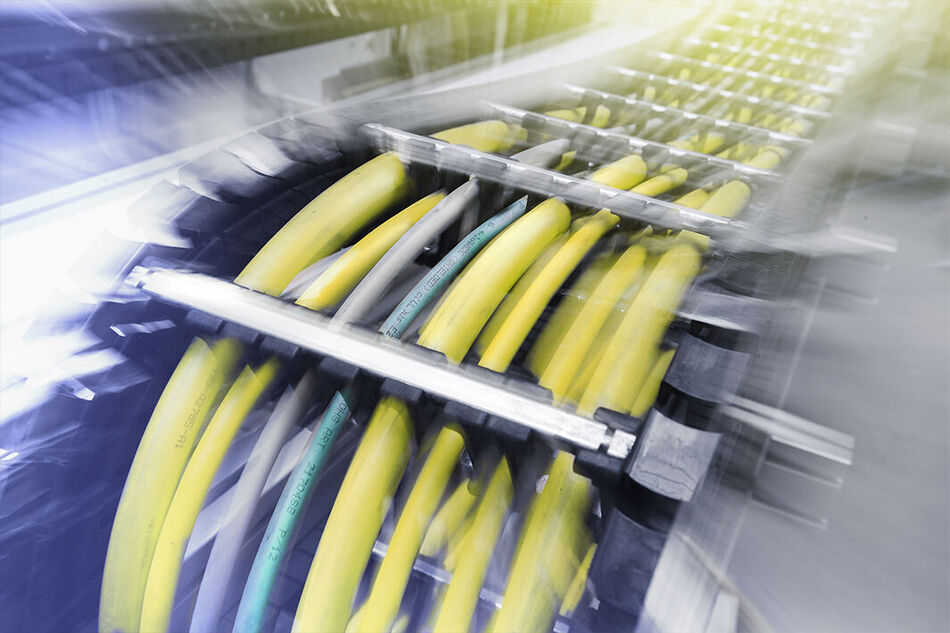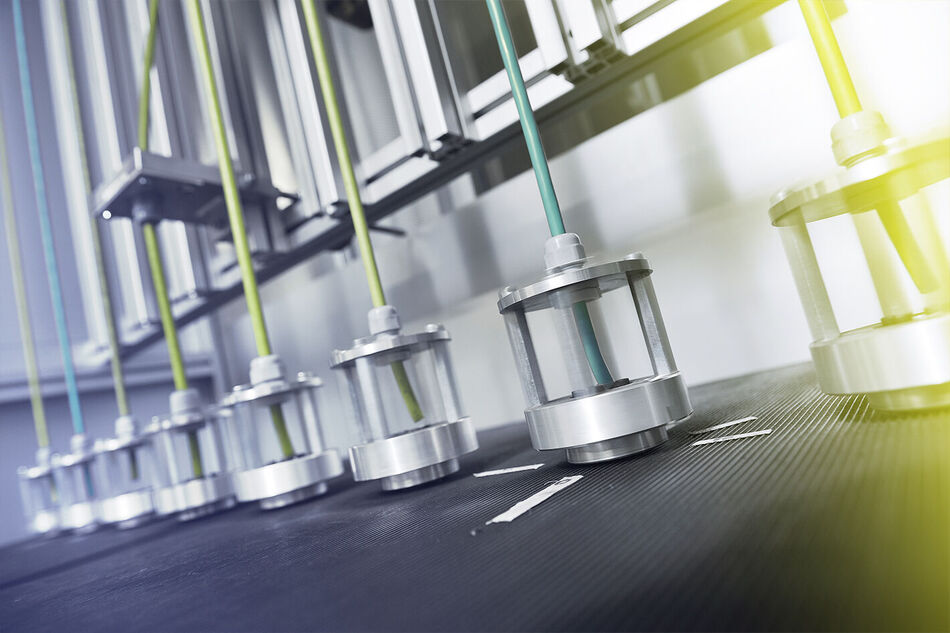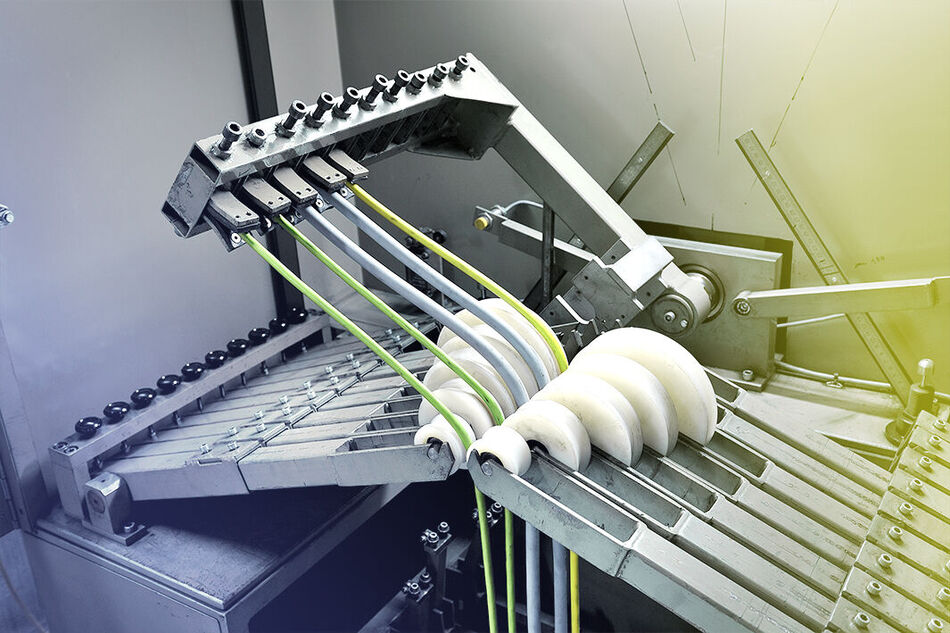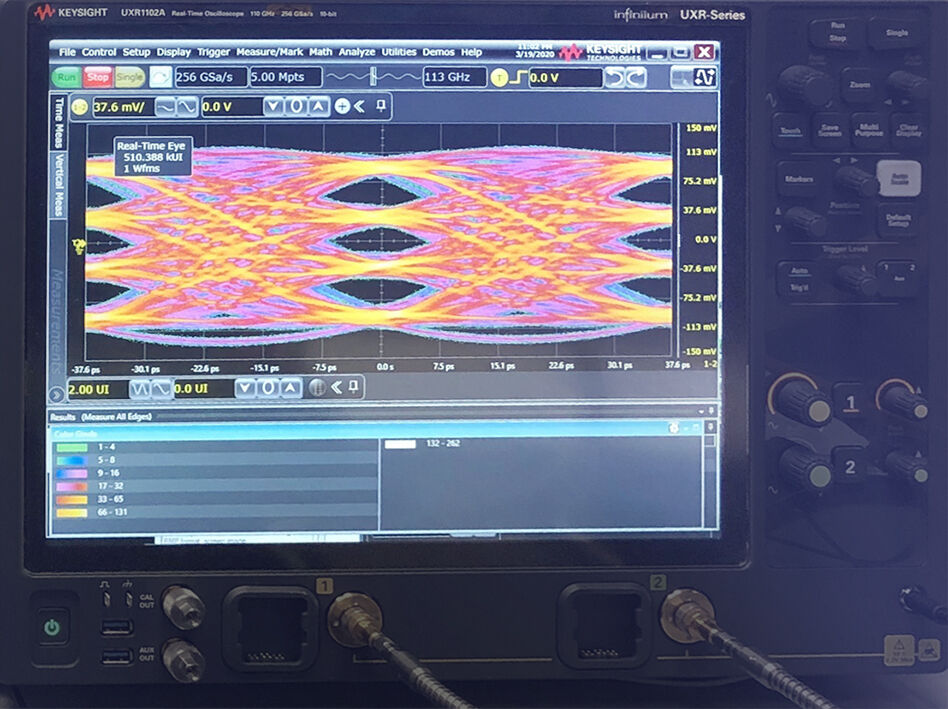The outstanding quality and reliability of our products and system solutions make our name a brand. With these properties we set standards in the market worldwide.
In addition to the continuous improvement of our product and process quality, rapid reaction to customer and market requirements is an important cornerstone of our quality policy. The entire process from planning to completion of a product is subject to permanent monitoring and continuous documentation at all our locations. Our quality management systems are certified according to DIN ISO 9001 and occasionally according to DIN EN 9100.
Our products meet national and international standards such as VDE, GL, EN and IEC. For the production and distribution of products for the North American market, we are able to apply over 700 different UL styles.
Quality tests
Numerous quality tests throughout our production processes guarantee the quality of our cables and cable systems. As well as this, the performance parameters of our high speed cables for use in data centers are tested and assured in our own radiofrequency laboratory. The longevity of our products in their applications is tested in long-term endurance tests.
In-line production tests
Product quality assurance in cable production
Our cables are manufactured to the highest standards of quality and are subject to constant and rigorous testing throughout the manufacturing process as well as at the final stage. Process-related data is constantly monitored “inline” throughout the production process.
It is also our standard practice to conduct spot checks testing cable properties either according to specific standards or on the basis of customer requirements.
- Wall thickness
- Diameter
- Eccentricity of the conductor
- Tight sit and stripping properties
- Abrasion
- Resistance to extreme cold or heat
- Shearing and tensile stress
Product quality assurance in cable assembly
All of the cable systems leaving our factory will have been subjected to extensive testing. We can also use customized testing and measuring methods.
Final inspection
Visual check for any obvious deficiencies, electrical test for continuity (network test), insulation, electric strength; high-frequency parameters such as insertion and return loss, mode conversion and skew using test fixtures specially optimized for each particular product
Micrograph laboratory
Micro sectioning test with subsequent documentation; archiving of crimping results at the request of the customer. Software-based micrograph generation and analysis function with information on the compression level, crimp height, surface area/cross section calculation.
Tensile strength test
Similar to the micrograph test, this is also a destructive test where the withdrawal force at which the cable disengages from the cable connection is determined and documented before the actual work starts.
Mechanical/thermal tests
Mechanical testing specifically designed for cables
We are continuously investing in the improvement of our instrumentation. The reliability and performance of our cables and cable systems are tested in a range of processes designed to verify their longevity.
Insertion test
to determine mating cycles and forces
Temperature and ageing test
to examine long-term behavior under specified conditions
Visual measurement
of the components
Drag chain tests
We conduct drag chain tests in our own test center to check the long-lasting mobility of our cables. Our test routes have different traverse paths, accelarations and movement speeds. Each test system can test up to 40 cables over the equivalent of several years. The longest traverse path measures 50 m.
Torsion tests
In different torsion and torsional bending machines, the cables are tested for twisting and traction around their own axes. They are subjected to a torsional movement of up to +/- 360° in lengths of 0.3 to 1.0 m.
High frequency tests
Ensuring high transmission standards
In order to test and verify the performance parameters of our high speed cables and cable systems, they are subjected to rigorous tests in our own high speed laboratory. Measurements such as insertion and return loss, mode conversion, skew, time delay, etc. of up to 50 GHz are possible.
In order to achieve highly precise measurement values, we use our own, specially-developed, low-loss test fixtures that are adapted to suit the transmission properties.
